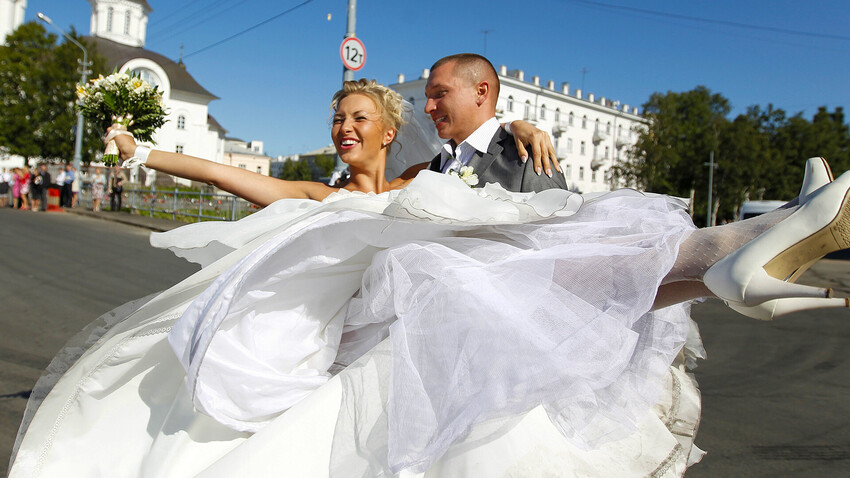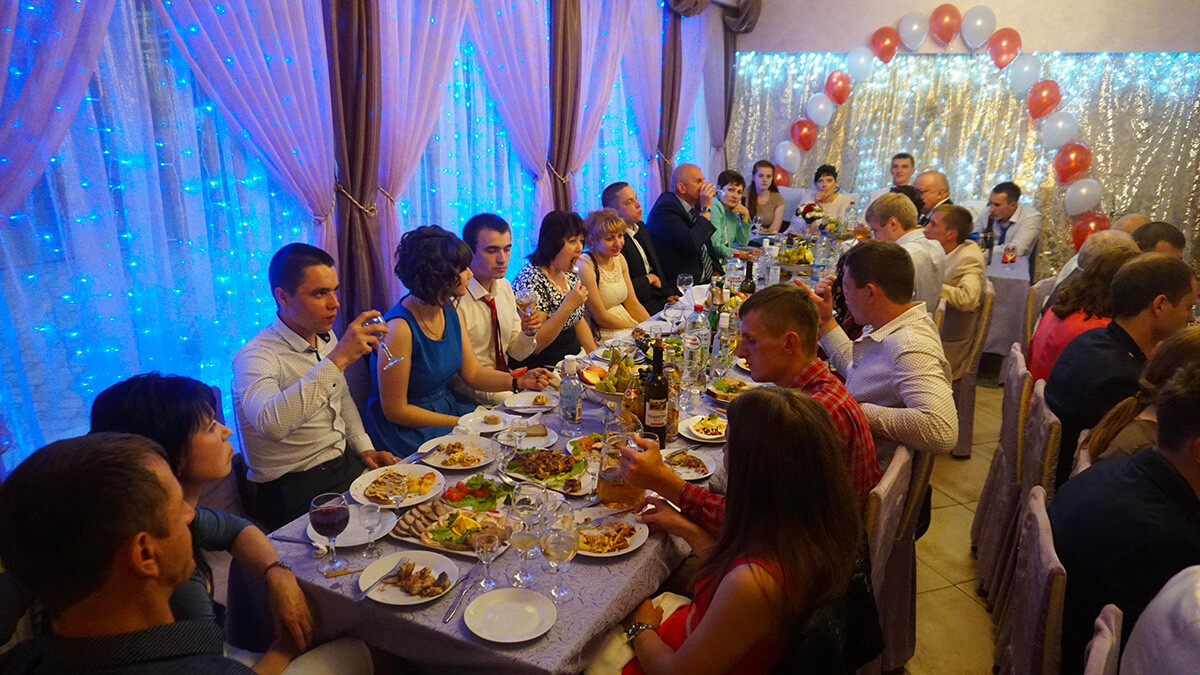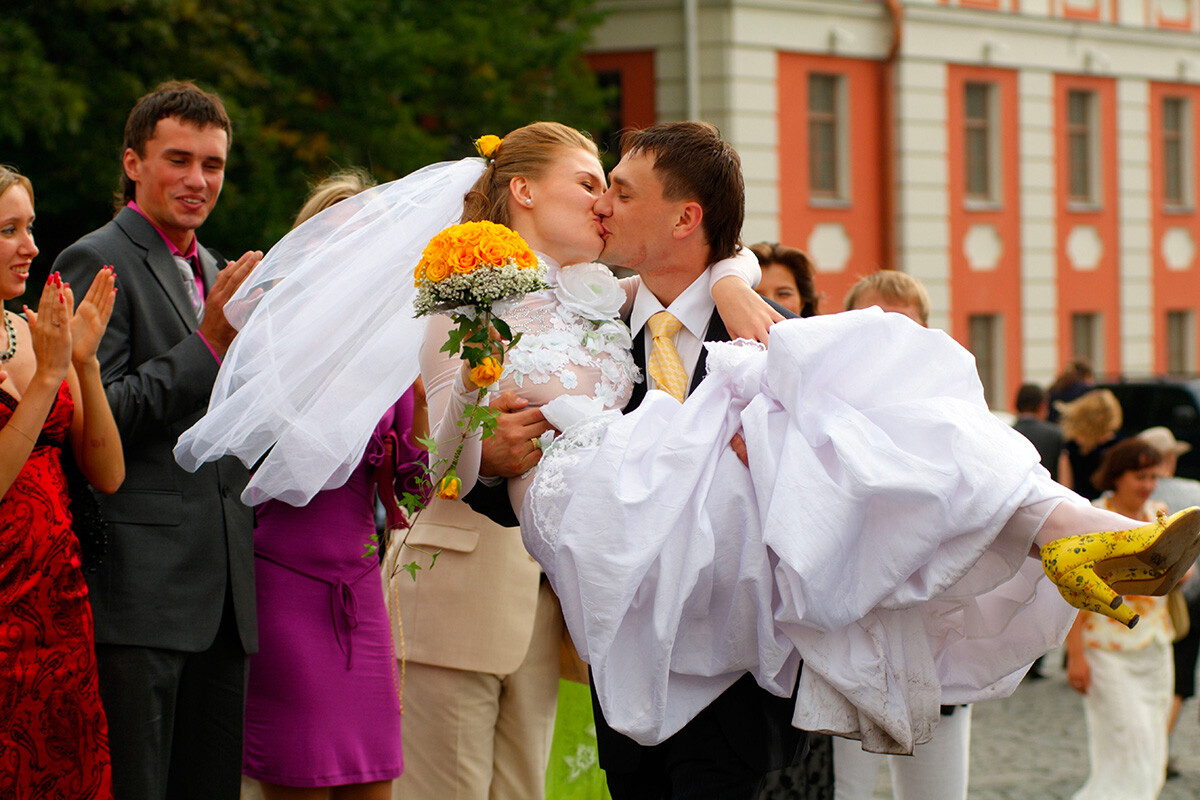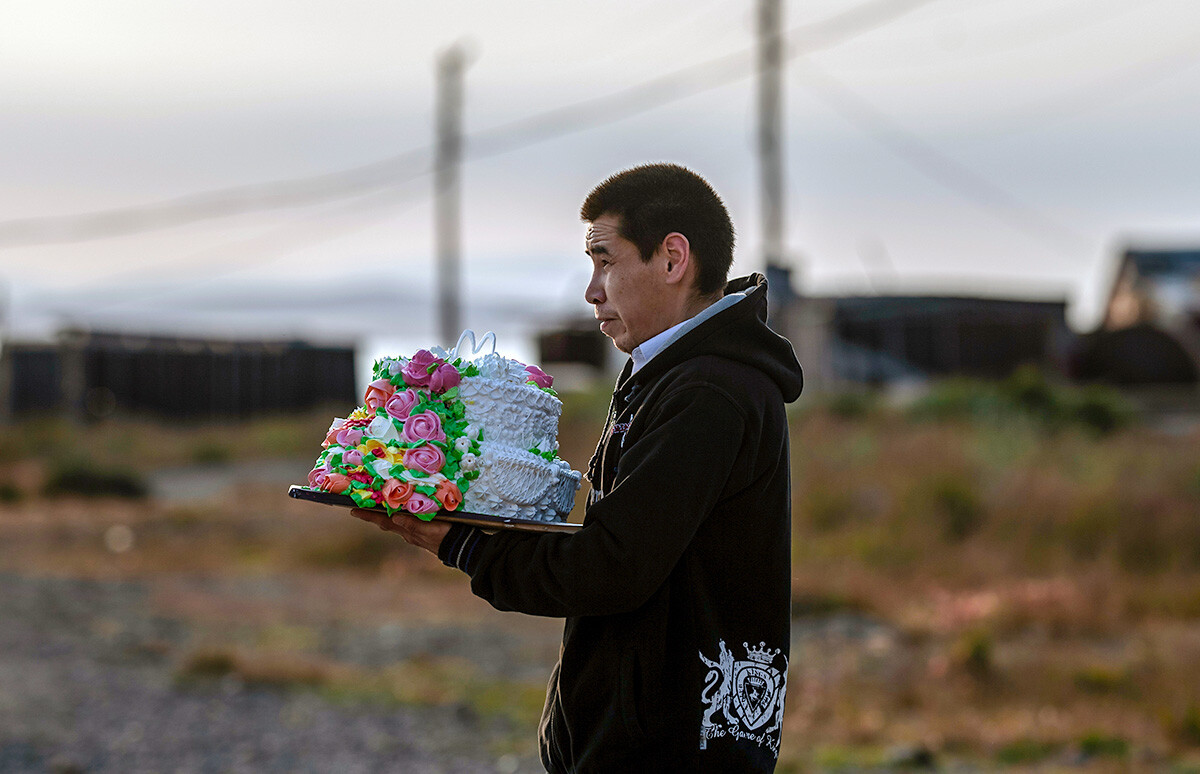
Newlyweds in Akrhangelsk, Russia
Alexey Koudenko/SputnikAt a Russian wedding, the first toast is: “To the health of the newlyweds.” After that, in Russia, the guests start shouting “Gorko!” loudly and repeatedly, encouraging the newlyweds to give each other a sweet, long kiss. As they do, the guests count: “One, two, three, four, five…” until the kiss is over, whereupon they raise their glasses in a toast. Of course, the longer the kiss is, the better!

Why do Russians shout “Bitter”? The answer is in the fact that traditionally among the Eastern Slavic peoples, this word was shouted ONLY at the wedding table, while drinking and/or eating.
In Poland, guests at the wedding feast, demanding that the newlyweds kiss, exclaimed instead: “Bitter cabbage!” or “Bitter soup!” In Bulgaria, guests shout: “The wine’s bitter” for the same reason.
“‘Bitter!’, they shout at the wedding table about wine – it should be sweetened, so the young couple should kiss,” wrote Vladimir Dahl, a collector of Russian folklore, in the 19th century.
“Sweetness is associated with the relationship between the newlyweds, symbolizing love and marriage. The meaning of feeding sweet and baked goods to the newlyweds means strong love and implies a ‘sweet life’. In wedding ceremonies, sweets have been present in many cultures,” philologist Elena Nikiforova writes in her 2015 article titled ‘Reflection of the taste code in the semantics of the wedding ceremony’.

However, it is not only Slavic culture that associates happiness in family life with sweetness. Take the British tradition of the newlyweds cutting the wedding cake together or the fact that the month after the wedding is called ‘honeymoon’.
So, Russians shout “Gorko!” at weddings, because it is a ritual of wishing the newlyweds a sweet and long family life. The word is shouted repeatedly, numerous times throughout the wedding party and the newlyweds are OBLIGED to kiss every time the guests shout it.

A guest at a wedding holding a cake, Chukotka, Russia
Vladimir Astapkovich/SputnikAt contemporary weddings, guests often start shouting “Gorko!” right at the steps of the civil registration office. This is wrong, warns Lyubov Puzikova, head of a civil registration office in Rostov-on-Don and researcher of Russian wedding traditions. “Originally, the call ‘Gorko!’ referred to the drinks, not the newlyweds. And when on the doorstep of the wedding registration office, they shout ‘Gorko!’ without filled glasses, it turns out that the guests are wishing the young people a bitter life. But, they should shout it at the table so that ‘the drink does not seem bitter’ and a kiss from the newlyweds should ‘sweeten’ the contents of the glasses,” Puzikova says.
The notion of ‘gorko’ is so popular in Russia that it even was the name of one of the most controversial movies about Russian people, the 2013 dark comedy ‘Gorko!’
However, modern Russian newlyweds often find the habit of shouting “Gorko” archaic and annoying. They often ask the wedding host in advance not to encourage anyone to shout the word or even separately agree on banning it with the guests. However, the older generation does not understand this approach and at any modern Russian wedding there may be at least one person who wants to shout “Bitter”. It is a tradition, after all! Gorko!
Dear readers,
Our website and social media accounts are under threat of being restricted or banned, due to the current circumstances. So, to keep up with our latest content, simply do the following:
If using any of Russia Beyond's content, partly or in full, always provide an active hyperlink to the original material.
Subscribe
to our newsletter!
Get the week's best stories straight to your inbox